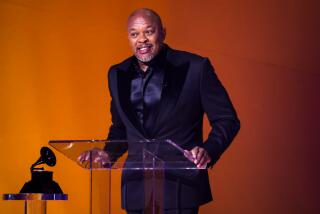Implant Surgeon Disputes Diagnosis : Artificial Heart Blamed for New Schroeder Stroke
- Share via
LOUISVILLE, Ky. — William J. Schroeder’s latest stroke apparently was caused by a breakaway blood clot from his artificial heart, complicated by blood-thinning drugs designed to prevent clotting, his neurologist said Wednesday.
Dr. Gary Fox said that brain damage from two earlier strokes during the last 11 months, including slurred speech, made it difficult to assess the effects of the latest episode. He said that Schroeder had not spoken in recent days.
Had Little Hope of Living
When asked to evaluate the quality of Schroeder’s life, Fox said: “I don’t think that I would want to live that way.” But he noted that Schroeder had little hope of living long with his diseased heart when he received his implant nearly a year ago.
The latest stroke, which occurred over the weekend, was diagnosed from computerized X-rays that disclosed hemorrhaging on the right side of the brain. Fox said the site and the characteristics of Schroeder’s blood vessels convinced him that a clot from the mechanical heart had caused the stroke.
He said the clot apparently had blocked a vessel in the brain, forcing blood to seep through the vessel wall.
However, Fox said that the medical team headed by Dr. William C. DeVries, Schroeder’s surgeon, disagreed with his assessment of the source of the clot and instead felt that it had originated in Schroeder’s brain.
“I think it came from some place else,” Fox said. When asked where, he said at a news conference that he believed Schroeder’s plastic and metal Jarvik-7 heart had been the source of the clot.
Fox said the issue of a clot’s emerging from the heart again raised the problem of how much anti-clotting drug can be administered without risking bleeding. He said that Schroeder’s blood is so thin it can ooze through the brain’s vessels.
Needs Anti-Coagulants
“Of course, this leads to a big dilemma,” Fox said. “He needs anti-coagulants, we think, to prevent blood clots and, of course, the anti-coagulants promote bleeding into strokes.”






